Artificial intelligence is redefining the marketing landscape in 2025, opening doors to innovation, speed, and unmatched results. Marketers now face a marketplace overflowing with ai tools for marketing, making it harder than ever to identify which ones truly deliver value.
Choosing the right solutions can supercharge your team’s efficiency, spark new creative ideas, and maximize your return on investment. But with so many options, where do you start?
In this article, we’ll break down 10 game-changing ai tools for marketing. Discover their standout features, benefits, pricing, and best-fit scenarios so you can confidently elevate your marketing success in 2025.
The Rise of AI in Marketing: 2025 Trends & Opportunities
Artificial intelligence is redefining the marketing landscape in 2025. More brands than ever are integrating ai tools for marketing into their daily workflows, aiming to streamline processes and unlock new levels of efficiency.
Accelerated Adoption of AI in Marketing
The adoption of ai tools for marketing has reached unprecedented speed. In 2025, platforms like ChatGPT have surpassed 100 million users, and GPT-4 saw over a million registrations in its first week. Marketers are automating repetitive tasks, freeing up time for strategy and creativity.
Recent reports, such as AI's Transformative Impact on Marketing in 2025, highlight how brands leverage AI-enhanced customer journey mapping and real-time analytics for a competitive edge. With these advancements, marketers are seeing improved productivity and measurable ROI.
How AI is Reshaping Marketing Strategies
AI tools for marketing are driving a shift toward hyper-personalization and data-driven decision making. Marketers now use AI for predictive analytics, allowing them to optimize campaigns in real time. Personalization engines deliver tailored content and offers based on customer behaviors and preferences.
Real-time data analysis helps teams respond to trends as they happen. By harnessing these capabilities, marketers can build more engaging experiences and drive better results with less manual effort.
Challenges and Considerations
Despite the promise of ai tools for marketing, several challenges persist. AI still struggles with contextual understanding, which means human oversight remains crucial for strategic planning. Marketers must also navigate ethical and legal concerns, including data privacy, copyright, and regulatory compliance.
Blending AI with human creativity is essential. While AI can generate ideas and automate tasks, the nuanced touch of experienced marketers ensures campaigns remain authentic and brand-aligned.
Key Areas Where AI Delivers the Most Impact
Marketers are seeing the greatest benefits from ai tools for marketing in four core areas:
- Content creation and optimization
- Email marketing and automation
- Visual asset generation
- Marketing analytics and competitive intelligence
| Impact Area | Example Use Case |
|---|---|
| Content Creation | Blog posts, ad copy, social media |
| Email Automation | Send-time optimization, segmentation |
| Visual Generation | Custom images, campaign graphics |
| Analytics & Intelligence | Competitor tracking, performance |
These applications help marketers increase output, improve targeting, and gain insights faster than ever before.
Future Outlook: Preparing for 2025
Looking ahead, ai tools for marketing will continue to evolve. Marketers must stay updated with new technologies and best practices to remain competitive. The role of the marketer is transforming into that of an "AI-assisted strategist," combining technical know-how with creative thinking.
Continuous learning and adaptability will be key. By leveraging the latest AI advancements, marketers can drive innovation and deliver exceptional results in an increasingly complex digital world.
10 Game-Changing AI Tools for Marketing Success in 2025
The landscape of ai tools for marketing is evolving at breakneck speed. With hundreds of new solutions launching every year, it is essential for marketers to know which platforms truly offer a competitive edge. The following ten ai tools for marketing stand out for their innovation, usability, and measurable impact.
Whether you need to accelerate content creation, automate workflows, or gain sharper insights, this curated list covers the essential solutions for 2025. For a deeper dive into the strategy behind these innovations, you can explore AI for Marketing Strategies to complement your toolkit.
Jasper.ai
Jasper.ai is a leader among ai tools for marketing, renowned for its AI-driven copywriting and brand voice consistency. With pricing starting at $39/month, Jasper.ai empowers content marketers, agencies, and SMBs to streamline their content pipelines.
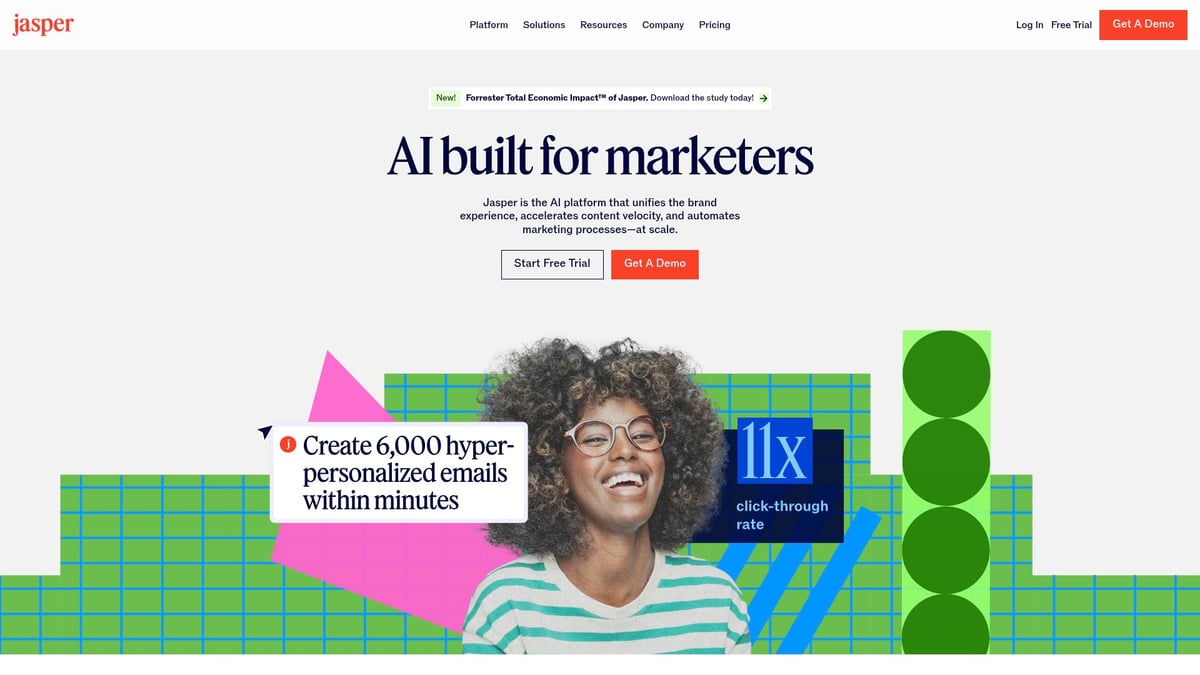
Core Features:
- AI-powered copywriting
- Brand voice customization
- Team collaboration
Key Benefits:
- Accelerates content creation
- Generates high-converting copy
- Supports multiple languages
| Pros | Cons |
|---|---|
| Intuitive interface | Premium features require higher plans |
| Robust templates | |
| SEO integration |
Marketers use Jasper.ai to overcome writer’s block, ensuring every piece of content matches brand tone. As one of the most popular ai tools for marketing, it is ideal for teams aiming for both speed and quality.
Surfer SEO
Surfer SEO stands out in the world of ai tools for marketing, offering a data-driven approach to content optimization. Plans begin at $89/month, making it a top choice for SEO specialists and agencies.
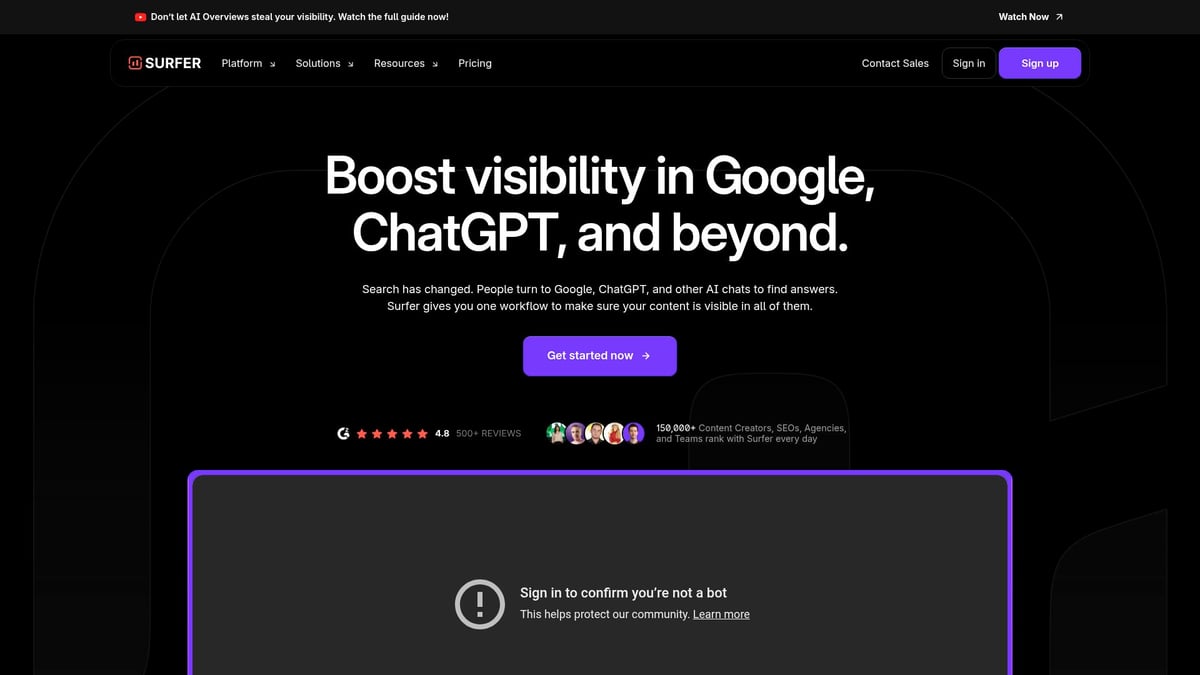
Core Features:
- Content optimization
- Keyword research
- SERP analysis
- Content audits
Benefits:
- Actionable SEO recommendations
- Improved search rankings
- Integrates with content editors
Pros:
- Easy-to-use platform
- Data-driven insights
Cons:
- Requires basic SEO knowledge
Marketers rely on Surfer SEO to enhance blog performance and grow organic traffic. Its actionable insights make it a staple in the ai tools for marketing stack.
Browse AI
Browse AI is a game-changer for marketers seeking real-time competitive intelligence. With a free tier and paid plans from $48/month, this no-code solution automates web data extraction.
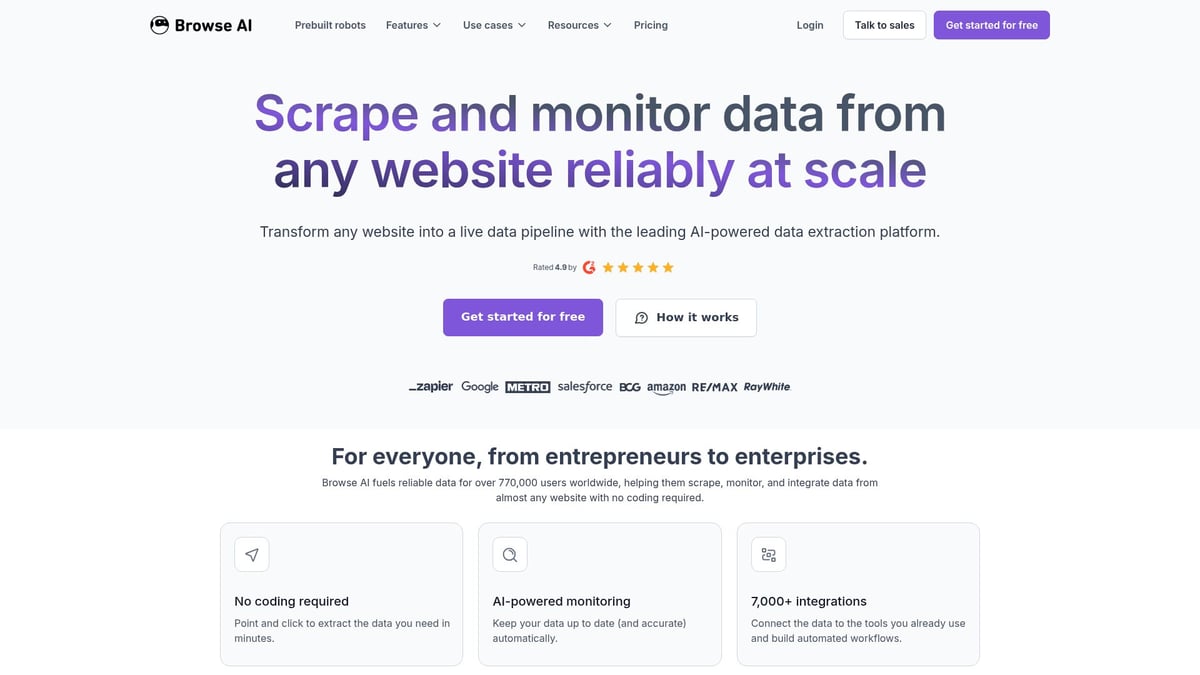
Core Features:
- Web data extraction
- Competitor monitoring
- Automated workflows
Benefits:
- Saves manual research time
- Real-time market insights
Pros:
- No-code setup
- Customizable extractions
Cons:
- Limited by website structure
Brands use Browse AI to efficiently track competitor pricing and industry trends. Among ai tools for marketing, it excels at turning data into actionable intelligence.
ChatGPT
ChatGPT, one of the most versatile ai tools for marketing, offers conversational AI, brainstorming, and prompt customization. Free access is available, with ChatGPT Plus at $20/month.
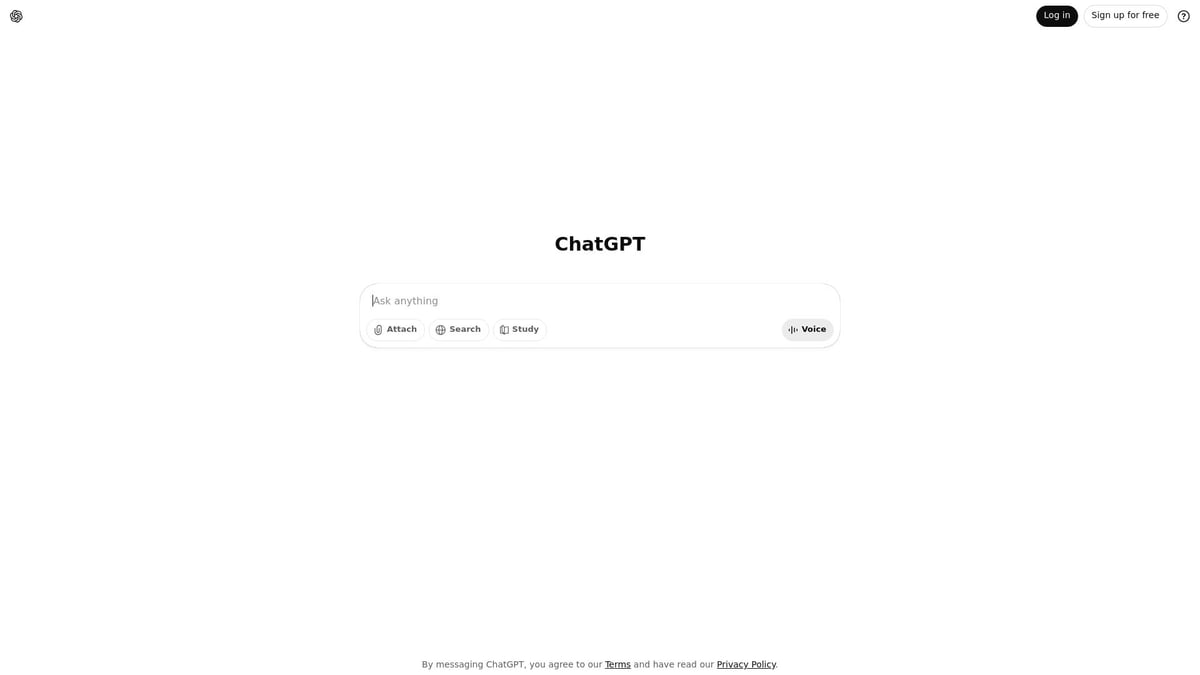
Core Features:
- Content generation
- Conversational AI
- Prompt customization
Benefits:
- Versatile for ideation
- Supports customer support tasks
Pros:
- User-friendly
- Powerful language model
Cons:
- Free version has a knowledge cutoff
Agencies and marketers use ChatGPT to draft blog outlines, social posts, and emails. Its adaptability makes it a core part of many ai tools for marketing strategies.
Midjourney
Midjourney redefines visual content with AI-powered image generation. Free trials are available via Discord, with paid plans from $10/month. This tool is a favorite among creative teams and social media marketers.

Core Features:
- Prompt-based artwork creation
- Realistic visuals
- Diverse artistic styles
Benefits:
- Rapid production of unique images
- Reduces reliance on stock libraries
Pros:
- High-quality output
- Intuitive via Discord
Cons:
- Prompt learning curve
Marketers leverage Midjourney to craft campaign visuals tailored to their brand. For those seeking ai tools for marketing with a creative edge, Midjourney is essential.
Seventh Sense
Seventh Sense focuses on optimizing email marketing with AI-driven send-time personalization. Starting at $64/month, it serves email marketers and B2B companies looking to boost engagement.

Core Features:
- Send-time optimization
- Engagement analytics
- Segmentation
Benefits:
- Maximizes open rates
- Personalized delivery
Pros:
- Integrates with HubSpot and Marketo
- Data-driven insights
Cons:
- Limited platform compatibility
Brands utilize Seventh Sense to improve campaign timing and results. As ai tools for marketing evolve, email optimization remains a critical area for ROI.
Zapier
Zapier is a leading workflow automation platform, connecting over 6,000 apps without code. Free plans are available, with premium options from $19.99/month. It empowers marketers to automate repetitive tasks and streamline operations.
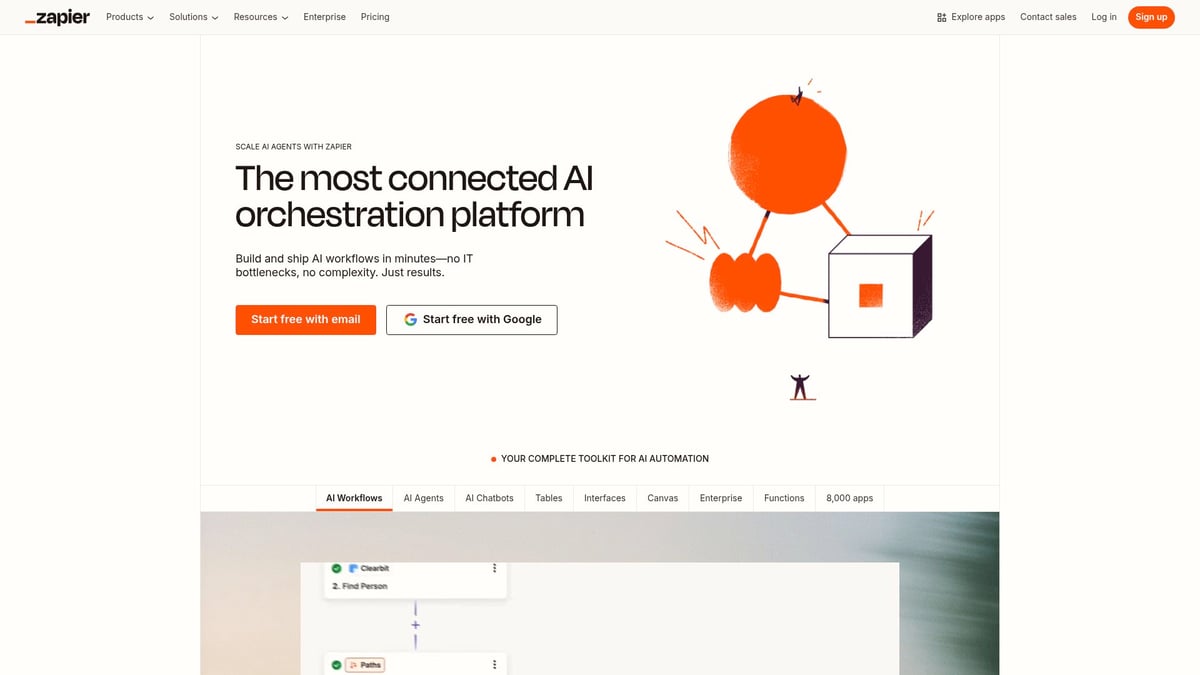
Core Features:
- Workflow automation
- App integrations
- Multi-step Zaps
Benefits:
- Saves time on manual processes
- Connects diverse marketing tools
Pros:
- No coding required
- Extensive app library
Cons:
- Complex workflows need advanced setup
Marketing teams use Zapier to automate lead capture and CRM updates. It stands out among ai tools for marketing for its versatility and scalability.
Google Gemini (formerly Bard)
Google Gemini offers real-time web access and AI-driven insights, making it a powerful research and strategy tool. Basic access is free, with premium features via Google One.
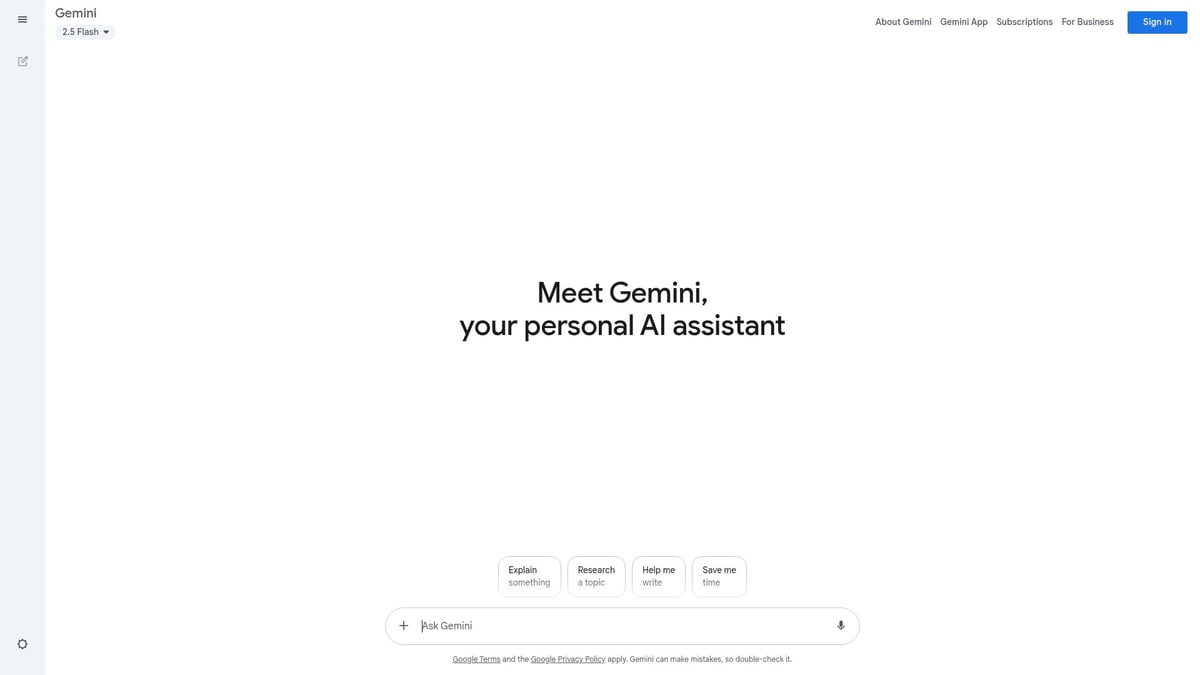
Core Features:
- Real-time data analysis
- Content generation
- Google ecosystem integration
Benefits:
- Up-to-date information
- Streamlined campaign planning
Pros:
- Real-time insights
- Strong Google integration
Cons:
- Limited brand voice customization
Marketers turn to Gemini for trend analysis and content research. It is quickly becoming a staple in the ai tools for marketing arsenal.
Fireflies.ai
Fireflies.ai automates meeting transcription and summarization, freeing marketing teams to focus on strategy. With a free plan and paid options from $10/user/month, it is accessible for teams of any size.
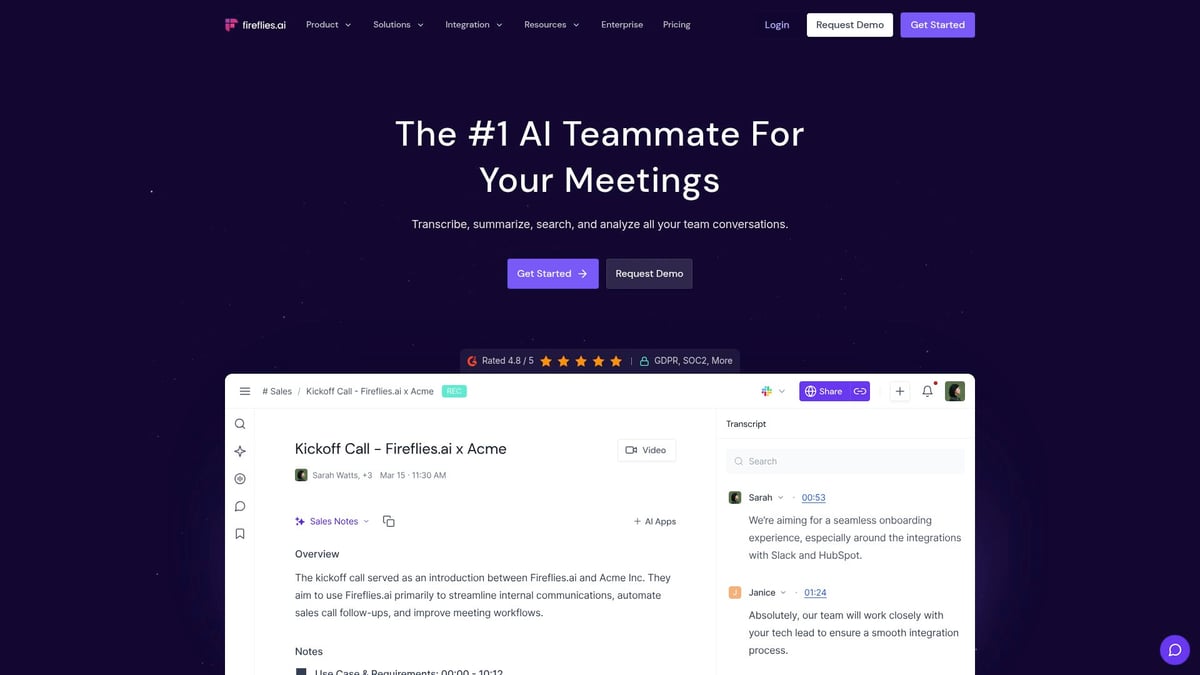
Core Features:
- AI meeting transcription
- Summarization
- Action item extraction
Benefits:
- Accurate meeting records
- Saves time on note-taking
Pros:
- Works with major meeting platforms
- Searchable transcripts
Cons:
- Occasional transcription errors
Teams use Fireflies.ai to capture and review strategy sessions. For ai tools for marketing, it enhances collaboration and knowledge sharing.
Merlin
Merlin is an on-page AI assistant available as a Chrome extension. With a free tier and premium plans from $19/month, it gives marketers instant access to summarization, email writing, and code generation.
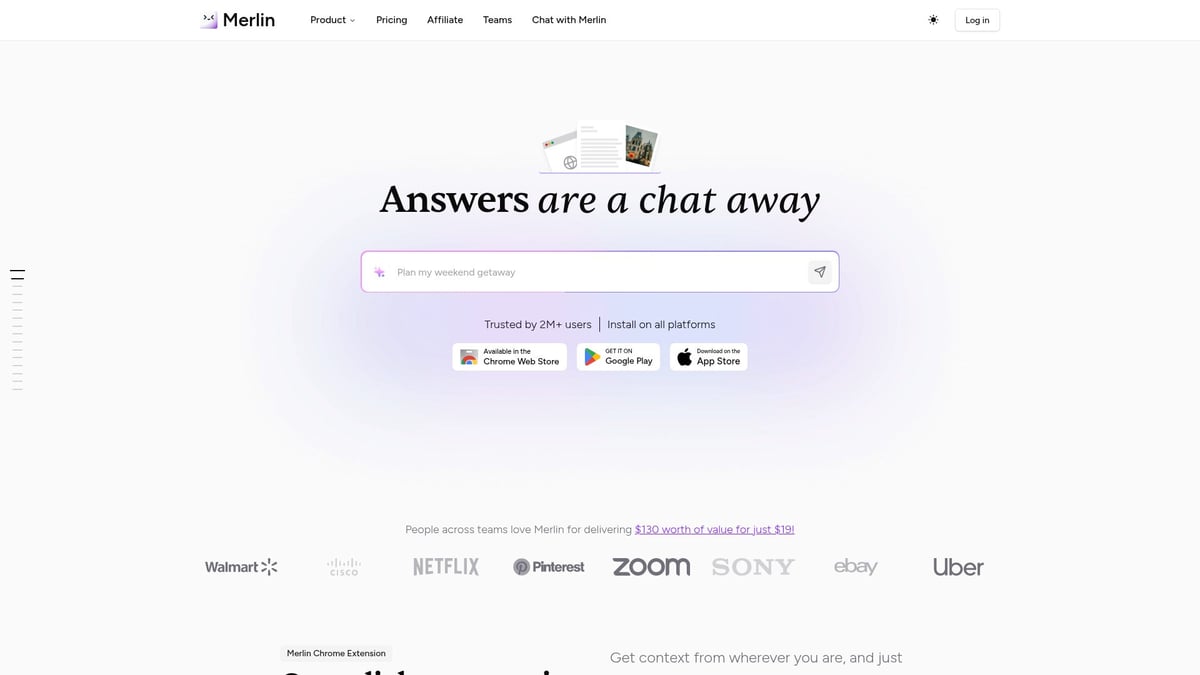
Core Features:
- On-page AI assistance
- Summarization
- Email and code generation
Benefits:
- Streamlines workflow
- Integrates across all websites
Pros:
- Fast and context-aware
- Multiplatform support
Cons:
- Chrome-only extension
Marketers use Merlin to quickly summarize competitor content and draft outreach emails. Among ai tools for marketing, Merlin stands out for its speed and browser integration.
How to Choose the Right AI Tools for Your Marketing Goals
Selecting the best ai tools for marketing requires a strategic approach. With countless options available, a clear evaluation process ensures your investments align with your objectives and drive measurable impact.
Assessing Your Marketing Needs and Objectives
Start by identifying your core marketing challenges. Are you aiming to improve content creation, streamline automation, or enhance analytics? Pinpointing these priorities helps you focus on ai tools for marketing that directly address your most pressing needs.
Map specific tools to workflows. For example, if personalized communication is a goal, seek solutions with advanced segmentation and automation features. Aligning tools with defined objectives ensures maximum return on investment.
Evaluating Features, Integrations, and Ease of Use
Next, compare the features of each platform. Look for user-friendly interfaces, intuitive dashboards, and seamless integration with existing marketing stacks like HubSpot, Google, or CRM platforms. Effective ai tools for marketing should simplify processes, not complicate them.
Prioritize solutions that offer robust support and clear onboarding. For deeper insights into how marketers are adopting and integrating AI, explore the State of AI in Marketing 2025 report.
Pricing, Scalability, and Support
Analyze the cost structure of your shortlisted tools. Consider whether free tiers meet your needs or if paid plans offer better value as your marketing activities scale. Evaluate if the solution can grow with your business, accommodating new users or expanding features.
Check the availability of customer support, community resources, and onboarding assistance. A scalable tool with reliable support helps ensure a smooth transition and ongoing success.
Security, Compliance, and Ethical Considerations
When adopting ai tools for marketing, security and compliance are critical. Ensure each platform adheres to data privacy regulations like GDPR and CCPA. Review how data is stored, processed, and protected.
Consider the ethical implications of automation and AI-generated content. Responsible use of AI protects your brand reputation and builds trust with your audience.
Case Examples and Success Stories
Many brands have achieved significant efficiency gains and ROI improvements by implementing ai tools for marketing. For example, recent findings highlight that 63% of organizations using AI have reported higher productivity and effectiveness (AI Adoption and ROI in Marketing).
Pilot test new solutions before full adoption. Iterative implementation helps uncover the best fit for your team and ensures long-term value.
Maximizing ROI: Best Practices for Implementing AI in Marketing
Unlocking the full potential of ai tools for marketing requires more than just adoption. Marketers must apply proven strategies to ensure these technologies deliver measurable value. Implementing best practices can help teams maximize ROI and achieve long-term success.
Setting Clear KPIs and Measuring Success
Begin by defining specific KPIs before integrating ai tools for marketing. Identify objectives such as increased lead volume, higher conversion rates, or improved customer engagement. Track progress with analytics dashboards and adjust strategies based on real-time performance data.
To stay informed on the latest ROI trends, explore insights on AI Marketing Automation Market Growth. Regular measurement ensures your AI investments align with business goals.
Fostering Collaboration Between Humans and AI
Balance automation with human creativity. While AI accelerates data analysis and content generation, human oversight refines messaging and maintains brand authenticity. Assign roles so teams can focus on strategy, while AI handles repetitive tasks.
Encourage open communication to share feedback on AI outputs. This approach drives continuous improvement, ensuring both technology and talent contribute to marketing excellence.
Training and Upskilling Marketing Teams
Empower teams to master ai tools for marketing through targeted training. Offer workshops, certifications, or peer-led sessions to build confidence and expertise. Upskilling maximizes tool adoption and helps staff stay ahead of industry shifts.
Encourage experimentation with new features. Teams that invest in learning can quickly adapt to changes and leverage AI for greater efficiency.
Staying Agile and Adapting to Change
The AI landscape evolves rapidly. Schedule regular reviews to assess tool performance and explore emerging trends. Stay flexible—be prepared to pivot strategies or adopt new solutions as market needs shift.
Monitor competitor activity and industry benchmarks. Staying agile allows marketing teams to seize new opportunities and maintain a competitive edge.
Navigating AI Limitations and Pitfalls
Recognize that ai tools for marketing have boundaries. Human expertise remains essential for strategic planning, nuanced messaging, and brand stewardship. Avoid over-reliance on automation for critical decisions.
For ongoing guidance and fresh perspectives, browse Marketing Category Insights. Combining AI with human judgment ensures ethical, effective campaigns.
